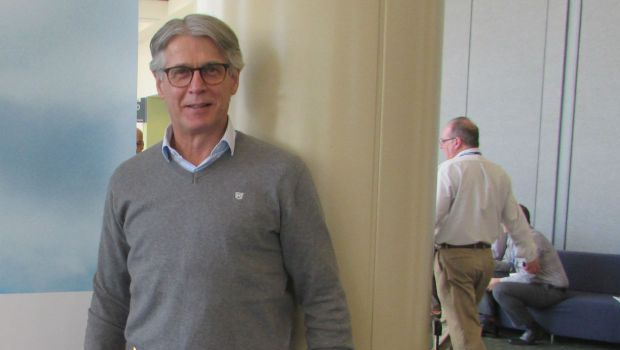SECOP seizing upon DOE efficiency regulation

The German compressor maker is taking advantage of new efficiency requirements to market its propane units in the U.S.
With OEMs serving the light commercial and household sectors in the U.S. poised to transition to hydrocarbon commercial refrigeration equipment to meet new Department of Energy (DOE) energy efficiency regulations, German compressor manufacturer SECOP is looking to take advantage by pushing its propane (R290) and isobutane (R600a) compressors in the American market.
The move to hydrocarbons is being shaped by the DOE’s new efficiency requirements for commercial display cases, which took effect on March 27.
The new rules cover a wide array of equipment, including vertical, semi-vertical and horizontal cases, with and without doors, at medium and low temperatures, and using remote and self-contained condensing units. And they make the average commercial refrigeration unit about 30% more efficient compared to the previous standards.
Looming also is the HFC delisting in 2019 and 2020 under the U.S. Environmental Protection Agency’s directives on acceptable refrigerants. But the DOE regulations are providing the biggest incentive to switch, according to Pieter Boink, SECOP’s head of business development & marketing.
“In the U.S., there was this duty to change that was a huge window of opportunity for us,” Boink says. “We didn’t want to miss it, and in 2016 was very successful for us compared to a few years ago.” And SECOP is still “taking advantage of this,” focusing on 150 V/60 Hz models for the U.S. market.”
The shift towards hydrocarbons by U.S. OEMs has been further influenced by Coca-Cola’s decision to open the door to hydrocarbons for smaller equipment and not just focus on CO2.
SECOP planted roots in the U.S. in 2013 when it opened its U.S. headquarters in Roswell, Ga., near Atlanta. That was three years after its creation in 2010, when German holding company AURELIUS AG bought Danfoss Household Compressors from Danfoss and its name was changed to SECOP GmbH.
“In the U.S. in the beginning we were grouped closely with the Danfoss sales organization, and they have continued to sell our products,” explains Boink. “But we have seen the need from the big OEMs that wanted to deal directly with us, and that is why we started the operation in [Roswell].”
Unique thermodynamic properties
In meeting the DOE regulations and the even stricter ENERGY STAR 4.0 standard that also launched on March 27, OEMs realized that they “need propane” because of its unique thermodynamic properties, says Boink.
“With the conversion from R290 [or propane] to HFCs you gain 20% to 25% [energy savings],” he points out.
Typically, SECOP compressors use R290 for commercial applications end and R600a for the household sector.
